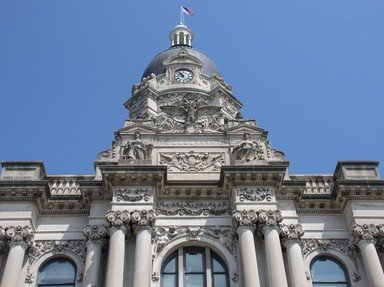Quiz Answer Key and Fun Facts
1. It might seem odd that it was once a crime to criticize the government of the United States, but that is in essence what the Sedition Act of 1798 provided. Which U.S. President used the Sedition Act to imprison many editors opposed to his policies?
2. Between 1839 and 1845 a famous American writer brought eighteen different libel suits because he took exception to things being written about him. Who was this litigious writer?
3. History records a number of instances in which a plaintiff's attempt to sue for libel backfires horribly on him, and he ends up facing criminal charges. A famous instance of this occurred in England in 1895. Who was the famous writer who sued the Marquess of Queensberry for calling him a sodomite, only to be arrested himself for sodomy when the charges turned out to be correct?
4. In 1903 a number of American newspapers published stories about Annie Oakley, accusing her of various misdeeds. Oakley responded by bringing 55 libel suits against the various newspapers she felt had harmed her with these false allegations. How many of these did she win or settle?
5. Teddy Roosevelt was involved in a famous trial in 1912 when he sued a Michigan newspaper editor for libel. What had the editor said to get Roosevelt so riled up?
6. In 1948 Alger Hiss filed a libel case against a man who accused him of having been a Communist. Who was this defendant, who later wrote a bestselling autobiography entitled simply "Witness"?
7. A watershed opinion on libel law was handed down by the Untied States Supreme Court in 1964, making it harder for public figures to sue for libel. This case, Sullivan v. New York Times, held that what must be present for a public figure to prevail in a libel suit?
8. General William Westmoreland sued over allegations in a 1982 story that accused him of participating in a conspiracy to cover up the estimates of enemy troop numbers while he was commander of U.S. forces in Vietnam during the Vietnam War. Which news organization did he sue?
9. Carol Burnett successfully sued "The National Enquirer" in 1981 over a story it published about her. What was the allegation which she took such exception to?
10. In 1998 a famous American actor successfully sued a London tabloid over an article alleging that his marriage was a sham, designed to cover up his homosexuality, his impotence, and his sterility. Who was this plaintiff?
Source: Author
chessart
This quiz was reviewed by FunTrivia editor
gtho4 before going online.
Any errors found in FunTrivia content are routinely corrected through our feedback system.
